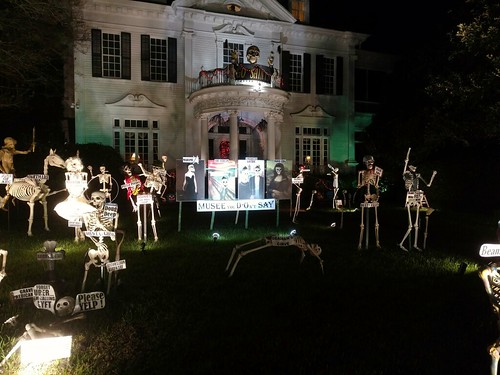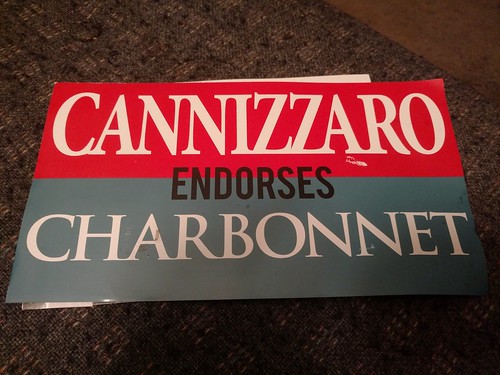So I'd like to move on to Part 2 of the "
How to lose an election" series I'm writing about this very bad mayoral race. But it turns out that first we're going to have to spend a moment being bogged down in
this credit card story. I had specifically determined not to worry about the petty back and forth of an election whose outcome was determined months ago. In fact, the first thing I'd like to say about this late expenses controversy is that it probably won't have much bearing one anyone's decision to vote for either candidate. Still, it's not exactly nothing.
State law prohibits using public money for personal or campaign
expenses. And while Cantrell paid back the money, Charbonnet's camp
argued that amounted to a tacit admission the law had been broken or
ignored.
Cantrell reimbursed the city on 11 different dates
starting on October 2013. In five cases, she made the reimbursements
from a personal account. Six were reimbursed by her campaign account,
according to the Charbonnet camp's analysis.
Cantrell's campaign
said Wednesday that the reimbursements show Cantrell's commitment to
ensuring that no personal expenses were made on a card paid for with
public money. And it denied that the timing of a July check reimbursing
$4,433 worth of expenses, covering almost the entirety of Cantrell's
time in office, had anything to do with her campaign for mayor.
That's all very much worth asking about. Fronting public money for campaign expenses seems like it violates at least the spirit of ethics laws even if the campaign fund pays the money back. Throw in the bit about "personal expenses" eventually paid for by campaign donors using the public money as a conduit and then you're raising serious issues.
There is also this nugget that might mean a lot or a little. But it's in there so it bears mentioning.
When taken together, the expense records, the lien the IRS placed on
Cantrell and her husband’s home in 2014 for unpaid income taxes and
their bank’s foreclosure on their home in 2013 suggest the councilwoman
can’t be entrusted with the city’s purse strings, said Stuart, the
Charbonnet spokesman.
“The simple truth is if she can’t manage her own finances, she can’t be trusted with a billion-dollar budget,” he said.
Cantrell's
campaign has said the unpaid taxes occurred because of a dispute over
how much she and her husband owed the IRS, and then that debt wasn't
paid because of an error by First NBC Bank.
The Advocate has done a good job of pulling on the FNBC thread.
I've tried to keep track of their reporting here. Long story short, though, it's about some very important people making questionable use of federal grant money to leverage financing for their preferred projects. Maybe LaToya just happened to have a home loan from them by coincidence.
Anyway, there's something to this even if it doesn't rise to the level of a major scandal. (It might! But also it probably will go away after the election regardless.) It's
already being "both sidesed" because that's easy enough to do. Either way it's not something that should have any effect on the outcome. (I say "should" for a reason. But I'm getting to that.)
If nothing else it makes social media feeds amusing when a bunch of people who once upon a time
howled about Ray Nagin's credit card expenses suddenly have nothing to say about this. These little hypocrisies permeate our politics. Petty corruption is only bad when it makes
somebody else's friends rich. I'll link back to
a favorite example of mine for now because I plan on talking more about it in future posts. The point is, for LaToya supporters, the narrative has already been set. They're the "good guys" and the other side is a "corrupt machine." No amount of evidence muddying those waters was ever going to change their votes.
So even going in this direction is a highly questionable move for the Charbonnet people. But they've already spent the year running a lazy campaign about nothing so it shouldn't surprise anyone that this is all they know to do at this point. I would have considered arguments about the value in going after undecided or less committed Cantrell voters but
that was before the D.A. showed up.
NEW ORLEANS - A criminal complaint has been filed against mayoral
candidate LaToya Cantrell for her extensive use of a city credit card,
and District Attorney Leon Cannizzaro’s office forwarded the complaint
Thursday to Louisiana Attorney General Jeff Landry.
Cannizzaro is a vocal supporter of Cantrell’s opponent in this month’s mayoral election, Desiree Charbonnet.
Surely no one will think that suspicious. I know it's Halloween and all but maybe we could be a little less mustache twirly in our melodramatic villainy. It's tempting to think Cannizzaro is deliberately trying to undermine the whole line of attack here. Whether he means to or not, he's likely forfeited whatever slight difference the credit card news would have made for Charbonnet. People hate Cannizzaro. He's guaranteed to ruin any message just by associating himself with it.
Not that he cares. Most people probably aren't going to believe this but I think it's likely the D.A. is acting on his own accord in this matter. It obviously hurts the campaign so badly it's difficult to imagine they would have asked him to do this. Meanwhile Leon is happy to jump at any opportunity to promote himself.
He's possibly up for consideration as the next U.S. Attorney. It probably won't hurt his chances with the decision-makers there to show that he can harass a potential New Orleans mayor over petty bullshit. Or maybe he really is just this dumb. In any case, he's definitely very ethical. At least
that's what he paid this ethics lawyer to tell everybody.
On Monday, Cannizzaro's office released a letter by R. Gray Sexton,
the former longtime general counsel of the Louisiana Ethics Board,
offering a full-throated defense of Cannizzaro's action.
The DA
acknowledged after releasing the opinion that Sexton billed him about
$1,000 for offering his view. A spokesman said Cannizzaro planned on
paying Sexton personally, not with public money.
Anyway, like I've been saying, the result of the election is already determined. I'll get back on track trying to explain all of that later. Unfortunately, we still have to go through the motions of silly season.
Last night's debate was dominated by this silly slap fight. The candidates had to talk about the credit card stuff in response to the very first question and came back to it several times throughout the night. It's hard to say who looked worse.
Assume for a second that there are voters who honestly care about the credit card business as though it were a serious election determining matter. I don't think there are many but if there are, LaToya probably didn't convince them of much. First she insisted that nothing she spent any money on violated any rules and instead, "advanced the City of New Orleans." So Dennis Woltering went into the specifics of some of those expenditures
reported on here by David Hammer to which she only repeated herself. Also I think she said "best practices" a few times. It's really difficult to convey just how much condescension drips from LaToya's voice when she talks about this stuff and how grating that is. It's a good thing for her there aren't many undecided voters who are persuadable based on this issue.
Next, LaToya asserted that Desiree "manipulated the documents" without explaining how the facts are any different due to that "manipulation." Remarkably, this was enough to put Charbonnet on the defensive but only because Desi allowed it to. During one particularly stupid bit Desiree exclaimed, "I DID NOT TOUCH YOUR DOCUMENTS" before offering, "
the campaign did all that." This will surely reassure voters who may have had concerns about Desi's independence.
The good news is none of this was any less depressing than the rest of the debate which saw the candidates climb over each other to show who would do the most to "incentivize business" through tax giveaways and various offers to "cut red tape." Go back and watch if you want to have a big laugh about all that. My favorite part was either Charbonnet saying, "President Trump has made infrastructure a priority," or LaToya talking about how she wants to ensure we aren't "being punitive toward the landlord community." Sheesh!
But, look. The thing to get here is the election is not about the awful candidates or the things they say or the dumb ginned up controversies of the final weeks. The candidates are bad people. But candidates are always bad people. What voters actually have to do is look past the bad candidates and chose which set of elites is going to have the inside track on profiting from key policy decisions over the next 8 years. A lot of that will not affect you very much even as it makes certain individuals richer.
But some of it will affect you. The set of these corrupt elites backing one candidate may be somewhat more enthusiastic about privatization and "running government like a business" than the other set. One set of corrupt elites is slightly more friendly to Airbnb. One candidate's set of corrupt elite backers is decidedly more hostile to the rights of workers to organize. Maybe that stuff is important to you. Maybe it isn't. Vote for whichever you think best fits your preferences. But that's how the election will eventually touch most of us.
Maybe some future election will be different. Maybe some day we'll find better people to be candidates. And in that future, if you want to win that election, I will tell you how for one million dollars. But for now, this is what we have to deal with.






